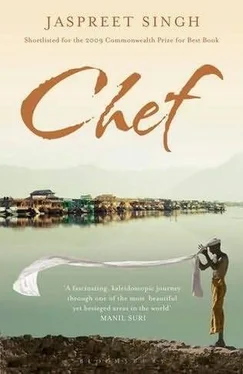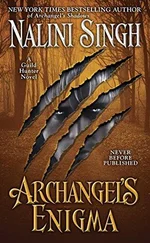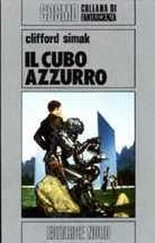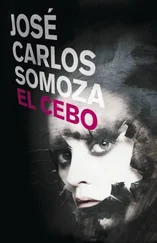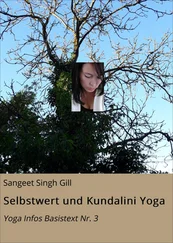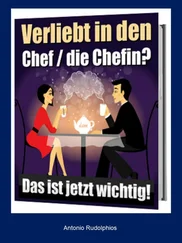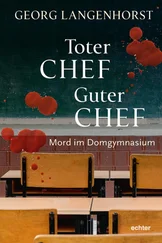‘I am in a hurry,’ I said.
He stopped not far from her and honked.
‘Going to the army camp?’
She nodded.
‘Get in,’ he said.
She squeezed in beside me and lit up a cigarette as soon as she settled.
‘Please don’t smoke in the truck,’ I said.
‘It is OK, Major,’ said the driver, smiling at us in the mirror. ‘Let her.’
She made brief eye contact with me, then threw the cigarette out the window. The shopping bags were squeezed in the space between our legs. I picked up the strawberries, which were wrapped in an old English newspaper. The color red had wicked into the yellow of the paper, the Government was planning to construct a railway track all the way to Kashmir. I sliced the strawberries with my army knife. I am not hungry, she said. Take some home, I suggested. I don’t like cherries and strawberries, she muttered and sat there silently. Just before the driver made it to the camp gates we heard sounds of sirens. Emergency vehicles were heading downtown. He turned around and stopped not far from the hospital. Without saying a word, she jumped out of the truck.
The truck would not start up right away. From the window I watched as she opened her purse and dug out a fresh cigarette and put it between her lips. Camel. It was an imported Camel. Her hands started searching for a light. There was a matchbox in the driver’s shirt. He gave it to me and I jumped out and ran to her and struck a light. She turned away. I struck another, but again she turned her head.
‘Why don’t you just give it to her,’ yelled the driver.
‘OK,’ I said.
She struck the match herself.
‘This is my last cigarette,’ she said before disappearing.
In the kitchen I heard that the General’s car had been grenade-attacked downtown. The news terrified me. Kashmiris, Major. Terrorists, Major. Close to the vet’s clinic the car had slowed down to negotiate the speed-breaker when a Kashmiri lobbed a grenade. The car shot up in the air and was ripped to pieces. Although the driver and the orderly had escaped unharmed the dog had been badly wounded.
General Sir rushed to the site with his staff members and a curfew was imposed on the city. Sirens echoed in the valley.
The ADC was in a bad mood when he marched into the kitchen to inform me that Sahib was going to skip the Sandhurst curry that night. No dinner for Rubiya either, he added. The girl is very sad. There is no point cooking the dinner.
‘But how can you be sure, sir?’
‘As I say.’
‘But, sir, during times like these one feels more hungry, not less.’
‘As I say.’
‘Sir.’
‘General Sir will drink coffee only,’ he said. ‘And you, Kirpal, will take the tray to his room. Twenty-one hundred hours. Sharp.’
‘Me, sir?’
‘Your day has come. Tonight you will serve Sahib in his room. Understand?’
‘Sir.’
‘And do not forget the hot-water bottle.’
‘Yessir.’
I was nervous and ran to my room and shared the news with my assistant. He was busy looking at porn magazines.
‘Major,’ he cried loudly, ‘girls are heaven.’
I told him that touching oneself makes one weak. Touching oneself was not real. He seemed to disagree with me.
‘Major, look at her momays!’
He had a pile of Debonairs and Playboys on his bed.
It used to be my bed. But after Chef was posted to the glacier, I moved to his bed, and the assistant occupied my old bed.
‘Masturbation is bad,’ I said.
‘Major, what is wrong with making love to oneself? If one can cook for oneself, then one can also touch oneself.’
‘It is not real.’
‘Major, have you ever seen a naked girl before? Come. Here. Look. Nangi Ladki.’
A helpless rage filled me. Anger began flowing inside me, and the tray shook as if the earth was shaking when I marched to Sahib’s room. I was wearing Sahib’s old clothes and shoes, which I had received on Diwali day, and I stood outside his room at twenty-one hundred hours, sharp.
I froze in my position, waited outside longer than I should have. I could not believe what I heard. I think inside the room he was weeping. Sahib was listening to some soft ghazal music, the notes were extremely melancholic. But he was weeping as well. He was very attached to the dog and he was weeping. I stood outside for a long time with milk, coffee, sugar, cups, and silver spoons, and finally when my courage returned I tapped twice or thrice on the door. But the taps must have been very, very light, they must have felt like the passing breeze to the General inside that room. I tiptoed to the kitchen, transferred the coffee to a thermos, and left the tray outside the door by the mat. Then I returned to my room.
My assistant was still up on his bed, on his elbows, looking at the glossy magazines. He reeked of rum. The room had the odor of sperm. There is no privacy in the army unless one is an officer. That was the first time I lost my patience. I yelled at him. Touching oneself is not real, I repeated. Shut the light and go to bed, I said. That night I listened to special music. Chef had given me a cassette of German music as a parting gift. The music went fast, then slow, fast, slow and fast again. Listening to those beautiful foreign sounds made me forget where I was and made me forget about masturbation.
The dog never returned to its old self again. It had lost an eye, and the vision in the other eye already had grown very dim. So it would circle round and round. There was hardly any flesh left on its hind legs. Little Rubiya thought that the dog loved moving in spiraling circles and semicircles. She would count the circles like an expert mathematician. Zero. One. Two. Three.
Kip-ing!
Sometimes Rubiya, trying to catch butterflies, would drift towards my quarter, but the ayah would come after her. The girl hated school and would often try to run away. She flared her nostrils while telling me about another then another escape from school. The girl’s face resembled the dead woman in the painting, but her eyes were different, tiny, her legs thinner than lotus roots. Her cheeks were soft but dry, I knew this even without touching them.
Rubiya and I, even then, despite her ayah, developed a special understanding, which goes beyond words. Sometimes when Sahib happened to be a little annoyed with my performance, Rubiya would wink or smile or give me a look which meant I understand, don’t worry, my father is a bit out of his mind. He is a bit fussy, that is all.
How could I have predicted then that she was going to become someone big one day? How could I have seen the poet in Rubiya?
Those days there was dust in my eyes, but let me say it again, those days were really the golden age in Kashmir.
The reason the enemy was able to cross the border and set up their camp on the glacier is because our Intelligence officers were sleeping, or playing golf, or building hotels and gyms and malls in Delhi, or they were drinking rum. And polishing their American accents. The enemy knew this and meanwhile entered the country and built bunkers high up on the mountains. Mules and helicopters had transferred rations to the bunkers, and our Intelligence officers kept sleeping. Our leaders kept posing for the Lahore-Delhi bus diplomacy photos, and no one knew that General Musharraf and members of his staff had crossed the Line of Control to visit the so-called freedom fighters, the soldiers of the Pakistani 5th Light Infantry, who had built concrete bunkers in our land. By the time the local villagers informed our army about the infiltrators it was too late. Thousands of enemy guns and men had crossed into our territory, and our men started dying like sheep and dogs.
Early in June news reached us in the kitchen that the situation had shifted from bad to worse in the border areas of Kargil, eighteen thousand feet high. My assistant had to leave the kitchen on a convoy to the front, and he died in Tololing. Time flowed differently now for us in the kitchen – breakfast was served at night and lunch at five in the morning and dinner at noon. On certain days all we managed to whip up was raw and half cooked or yesterday’s leftovers and many a times Sahib ate with soldiers at the border posts. During war the difference between jawans and officers diminishes, Chef used to say. They eat from the same ration.
Читать дальше
Конец ознакомительного отрывка
Купить книгу
